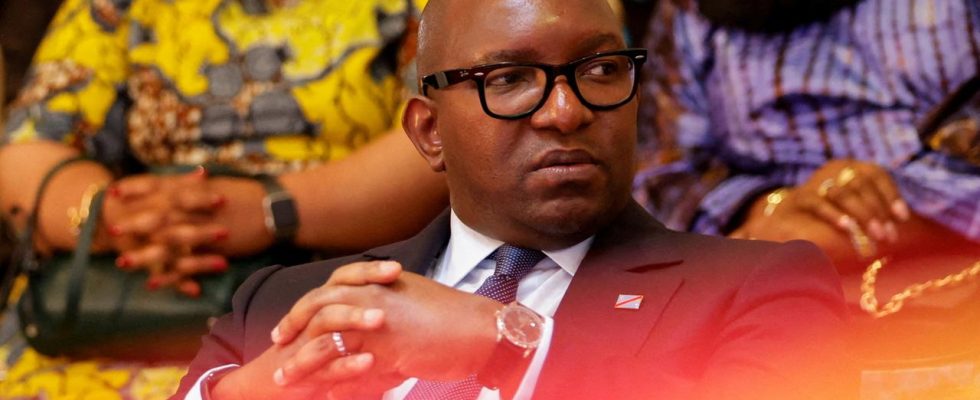Violence is escalating in the east of the Democratic Republic of Congo and civilians have been killed again. Following Prime Minister Lukonde’s resignation, civic organizations are expressing concern about a possible power vacuum.
Amid escalating violence in eastern Democratic Republic of Congo, Prime Minister Jean-Michel Sama Lukonde has tendered his resignation. According to a statement from the presidential office in Kinshasa, he also submitted to President Félix Tshisekedi the resignation of several members of his cabinet, including the defense minister.
The resignation is related to provisions of the Congolese constitution: eight days ago, Lukonde’s mandate as a member of the National Assembly in Kinshasa was confirmed after the parliamentary elections in December. According to the constitution, elected officials must decide between their official mandate and their representative mandate within eight days. Lukonde, who has been in power since 2021, now wants to fulfill his mandate as a member of parliament.
Hundreds of thousands on the run
Violence had recently increased again in the eastern region of the country on the border with Rwanda. Dozens of civilians died in two attacks earlier this week. The rebel group ADF, which is linked to the terrorist militia “Islamic State,” was responsible for this, local authorities said. On Tuesday it killed 13 people in the Mambasa area of Ituri province, said Christophe Munyanderu of the Convention for Respect for Human Rights, a civil society group. Most of the victims were murdered in their homes. In another attack in North Kivu on Monday, ADF members armed with machetes and rifles killed at least 11 people.
Hundreds of thousands of people are on the run in North Kivu province. There, the M23 militia has advanced shortly before the provincial capital Goma and is fighting against government troops and allied militias. Given the special situation, Tshisekedi called on Lukonde and the resigned ministers to continue to carry out their duties until their successors are appointed.
Civil society representatives expressed concern that a power vacuum could play into the hands of the rebels. “We hope that the consultations (on a new government) will be accelerated so that the Democratic Republic of Congo has a new government as soon as possible,” said Marrion Ngavo, head of the alliance of civil organizations in Goma.
Sanctions against militia leaders
The UN Security Council, meanwhile, imposed sanctions on six militia leaders in the country. The measures are aimed, among others, at a spokesman for the M23 rebel movement and two members of the ADF militia. The UN body based the sanctions on human rights violations. The punitive measures adopted by the Security Council include an arms embargo, a travel ban and an asset freeze. The six militia members are accused of attacks on the civilian population and sexual violence.
The UN special representative for Congo, Bintou Keita, warned the Security Council of a worsening humanitarian crisis in the region. 400,000 refugees were accommodated in Goma alone. Due to the lack of clean drinking water and the poor hygienic situation, there is a dramatic increase in cholera cases.
Fights have been going on for many years
For decades, dozens of armed groups have been fighting for power and control of resources in the region. Several international military operations failed to pacify the conflict. The United Nations peacekeeping mission (MONUSCO) with around 14,000 soldiers has decided to withdraw.

